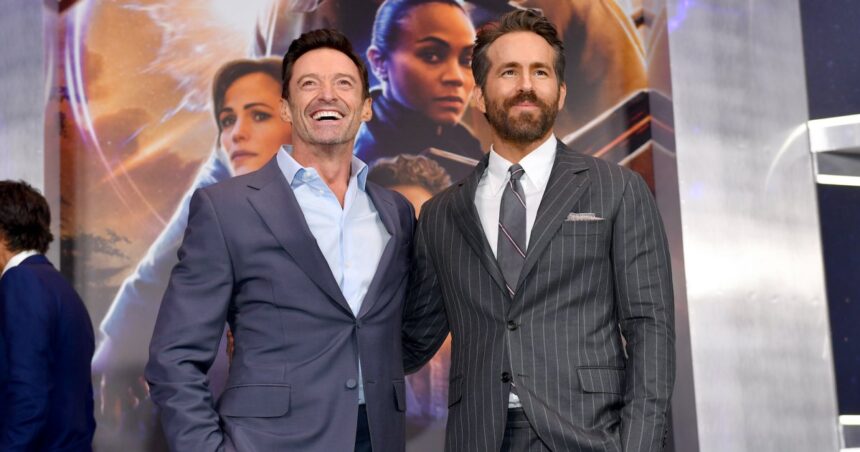The 2025 Golden Globes will be missing some big names this year, as Ryan Reynolds, Hugh Jackman, and Blake Lively have decided not to attend the prestigious awards ceremony. Lively, amidst her legal battle with her “It Ends With Us” co-star and director Justin Baldoni, has opted to sit out of the event. Her husband, Reynolds, and his “Deadpool & Wolverine” co-star Jackman will also be absent.
According to a source confirmed by Us Weekly, the decision not to attend the Golden Globes was made well before the legal battle between Lively and Baldoni. The absence of the trio is not related to the ongoing scandal surrounding “It Ends With Us.” Additionally, it has been reported that there will likely be no mention of the controversy at the awards show, as host Nikki Glaser has expressed her intention not to make any jokes about the situation.
In December 2024, Lively filed a lawsuit against Baldoni, accusing him of sexual harassment and creating a hostile work environment on the set of “It Ends With Us.” The lawsuit also involves publicists Melissa Nathan and Jennifer Abel, as well as Wayfarer Studios. Lively claims that Baldoni caused her severe emotional distress and orchestrated a social manipulation campaign to damage her reputation.
In response to Lively’s accusations, Baldoni has denied the claims and filed a $250 million lawsuit against The New York Times for libel and false light invasion of privacy. He is also reportedly planning a separate lawsuit against Lively. Baldoni’s lawyer, Bryan Freedman, has stated that they plan to release all text messages between the two parties to provide transparency and allow people to make informed judgments based on evidence.
The legal battle between Lively and Baldoni has sparked significant controversy, but Glaser has made it clear that the topic will not be addressed at the Golden Globes. She expressed her reluctance to give any weight to the situation and emphasized her focus on hosting a respectful and enjoyable awards ceremony. The world is constantly evolving, and with it, so too are the ways in which we communicate. In today’s digital age, communication has taken on a whole new level of complexity and sophistication. From email to social media, we now have a plethora of tools at our disposal to connect with others in real time.
One of the most popular forms of communication in the digital age is email. Email has become an integral part of our daily lives, allowing us to send messages, documents, and files to anyone, anywhere in the world with just a few clicks. It has revolutionized the way we communicate with one another, making it easier and faster to stay in touch.
Another popular form of digital communication is social media. Platforms such as Facebook, Twitter, and Instagram have become essential tools for staying connected with friends and family, as well as for networking and building relationships with colleagues and clients. Social media allows us to share photos, videos, and updates in real time, creating a sense of immediacy and connection that was previously impossible.
Video conferencing is another important tool in the world of digital communication. With platforms such as Zoom and Skype, we can now hold virtual meetings and conferences with colleagues and clients around the world, saving time and money on travel expenses. Video conferencing has become especially important in recent years, with many companies adopting remote work policies in response to the COVID-19 pandemic.
In addition to these tools, text messaging and instant messaging have also become essential forms of digital communication. With the rise of smartphones, we can now send text messages and instant messages to anyone, anywhere in the world, instantly. This has revolutionized the way we communicate with one another, making it easier and faster to stay in touch.
Overall, digital communication has revolutionized the way we connect with others in today’s fast-paced world. From email to social media to video conferencing, we now have a plethora of tools at our disposal to stay connected with friends, family, colleagues, and clients. As technology continues to evolve, so too will the ways in which we communicate, creating new opportunities for connection and collaboration in the digital age.








